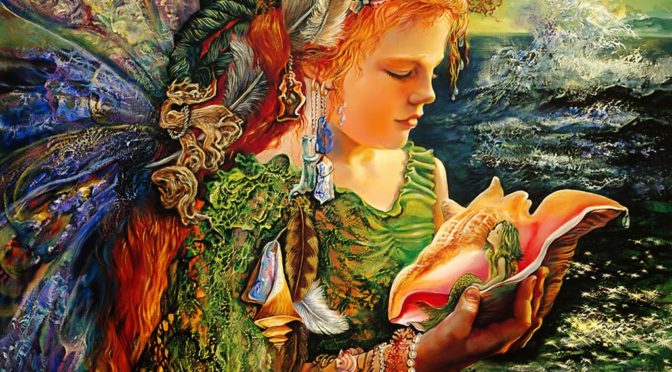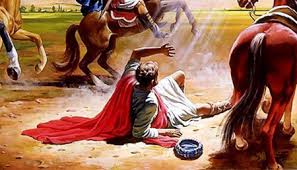Master events, involve “work” or action whose main thrust exists outside of time, yet whose effects are felt within time.
Such effects may appear suddenly within time’s context, rather than slowly emerge, say, into that framework. It is of course, that kind of outside-of-time activity that in our terms explains the origin of our universe. There are dimensions of activity, then, that do not appear within time’s structure, and developments that happen quite naturally, following different laws of development than those we recognize. It is not just that highly accelerated versions of time can occur at other levels of actuality, but that there are dimensions in which those versions are not impediments to the natural “flow” of events into expression.
Our closest approximation will be, again, our experience with time in the dream state — or instances in which complicated problems are suddenly solved for us in dreams or in other states of consciousness, so that the answers appear full-blown before us.
There are “durations,” then, that have nothing to do with time as we understand it: psychological motions that manipulate time but are apart from it. Any sudden emergence of a completed universe would then imply an unimaginable and a spectacular development of organization — that it did not just appear from nowhere, but as the “completed physical version” of an inner highly concentrated endeavor, the physical manifestation of an inspiration that then suddenly emerges into physical actuality.
That kind of activity, that kind of “work,” exists behind all of the structures and organizations and experiences with which we are familiar.
The world of ideas everywhere permeates physical reality, but ideas, even they are unexpressed, possess their own organizations, correspondences, their own spheres of motion and development. Master events emerge from that reality of idea, now, from which all ideas originate, uniting these through the use of natural correspondences. Every physical manifestation that we know has its non-physical counterpart, in which it is always couched, from which it came, and to which it will return.
Our historical time is, say, but one species of time that dwells upon the earth. There are many others. Time itself emerges from idea, which is itself timeless, so in those terms there was no point where time began, though such a reference becomes necessary from our own viewpoint.
It is probably almost impossible for man or woman to see that he or she forms the idea of historical context through his or her own associations and focuses. The heavy, specialized use of so-called rational thought has often caused him to narrow even his or her neurological recognition of other kinds of experience that might enlarge his or her view. In dreams there is greater leeway in that regard. Consciousness becomes more familiar with its own inner motion, and even with the kinds of work and actions it performs outside of its usual waking prejudices. The story of the Creation, as Biblical stated, is the symbolic representation of a master event — a legend that became its own event of course, forming about it whole arts and cultures, religions and disciplines. The same applies to Christianity itself, for all of the seemingly historical events connected with the official Christ did not happen in physical reality. They happened at another level of actuality, and were inserted into our time framework — touching a character here, a definitely known historical event there, mixing and merging with the events of the time, until the two lines of activity were so entwined that we could not unravel one without unraveling the other.
History happened in certain definite forms because of a belief in events that did not , in our world of facts occur. The main, brilliant thrust of those inner events, therefor, splashed out upon the human landscape, propelling peoples and civilizations.
The Christ story in the beginning was not nearly as singular and neat as it might now seem, for the finally established official Christ figure was one settled upon from endless versions of a god-man, with which man’s and woman’s psyche has long been involved: He was the psychic composite, the official Christ, carrying within his psychological personage echoes of old and new gods alike — a figure barely begun, to be filled out in time, although originating outside of it.
Such master events cause physical events, but they do not emerge originally from them.
Paul (Saul of Tarsus) had his vision. Now the vision (in which Paul not only saw the light of Christ, but heard his voice) happened in the world of fact. It occurred — but Paul did not see, or communicate with, a person of divine heritage, sent by his father to earth, who lived the life of the official Christ, and who was crucified. Paul had a vision in response to the needs, desires, and dictates of his own psyche as it was connected to the world of his time, following the patterns of stories about Christ that he has heard that had begun to release within him a great yearning that was, in that vision, then, expressed.
Christianity for many centuries served as an amazingly creative organizational framework, that expressed the vast complexity of the soul’s reality. It also in its way managed to even focus some of man’s and woman’s less handsome attributes toward ends that were less reprehensible than in the past. Master events of that particular nature bring about a completely new interpretation of historic events. Their intensity, power, and seemingly impelling nature exist precisely because their origins are not physical, but are drawn from the psyche’s deepest resources.
If I have believed in the phenomenon of sin and sought — apparently too rigidly — to avoid it, my intentions and interests always were not the avoidance of sin so much as the pursuit of eternal truths; the alliance with universal mind. Those goals ignite our creative powers and have (and still do) propelled us to explore all categories of existence possible, seeking to express those divine mysteries that lie within and behind each existence — yours and mine as well.
Our explorations involved no second-handed evidence handed down by others, but the direct personal encounters of our consciousness and being with the vast elements of the unknown — a meeting of the self (human and vulnerable) with the psychological realms of gods and eternities; giant realms of mind that our nature felt attracted to, and was uniquely equipped to perceive.
I believe in the soul’s survival first of all, and inspired the ‘creative self’ to step out as freely as possible even while in my heart I also believed in the existence of sin and devil. I felt upon my heart the heavy unkind mark of Cain, sensing that humanity carries (unfairly) the almost indelible strain — the tragic flaw — of being tinged by sin and ancient inequities. Thusly I reasoned: If I am flawed I must automatically distort even those experiences of the soul that seem clearest. I must unwittingly fall into error when I trust myself the most, since I share that sinful propensity. Yet despite those feelings I do (we do) unswervingly set forward.








